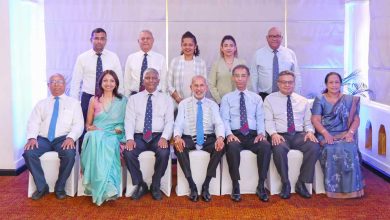DEVELOP SUSTAINABLE FINANCE ROADMAP
Government of Sri Lanka, IFC to Develop Sustainable Finance Roadmap to Promote Green and Inclusive Finance
Colombo, Sri Lanka, March 01, 2017—H.E. President Maithripala Sirisena urged the financial sector and other stakeholders to work towards sustainable development in the country. The President’s remarks were made at the first Sri Lanka Sustainable Finance Workshop, hosted by the Central Bank of Sri Lanka, IFC, a member of the World Bank Group, and the IFC-supported Sustainable Banking Network (SBN).
The workshop brought together over 160 senior representatives from government, the financial sector, and international organizations to share information, propose ideas, and build a consensus on Sri Lanka’s sustainable finance journey.
“I firmly believe that we need a responsible and inclusive financial system to reach our sustainable development goals in Sri Lanka. The banking sector is an important partner for tackling crucial development challenges, including climate change, poverty, and equity,” said President Sirisena, who also heads the Ministry of Mahaweli Development and Environment.
The workshop provides an opportunity for participants to learn from the sustainable finance experiences of regulators from across the globe. The Central Bank of Sri Lanka, with support from the government and commitment from the local banking sector, aims to develop a sustainable finance roadmap to guide the local banking and finance industry.
“We want to help banks effectively manage environmental and social risks associated with the projects they finance and increase support to businesses that are greener, climate friendly, and socially inclusive,” said Dr. Indrajit Coomaraswamy, Governor, Central Bank of Sri Lanka. “Sri Lanka is unique, with 18 banks already adopting 11 voluntary principles to operationalize the sustainable finance commitment, under the leadership of the Sri Lanka Banks’ Association.”
The Sustainable Banking Network (SBN) includes 31 countries representing 85 percent of banking assets from emerging markets. As a new member of the SBN, the Central Bank of Sri Lanka will benefit from experience and knowledge-exchange with other members.
“Governments and businesses around the world are taking important steps towards a fundamental transformation of the global economy to build a more sustainable future,” said Amena Arif, IFC Country Manager for Sri Lanka and Maldives. “In order to succeed, the financial sector must be a core part of this transformation. IFC is looking forward to supporting this transformation in Sri Lanka.”
To date, 15 SBN member countries have launched sustainable finance polices, guidelines, and roadmaps, which are leveling the playing field for banks to strengthen environmental and social-risk management and innovate green investment. IFC has also backed regulators in these efforts by providing its technical expertise and Performance Standards which are the basis of the Equator Principles adopted by over 80 financial institutions worldwide.

About Central Bank of Sri Lanka





